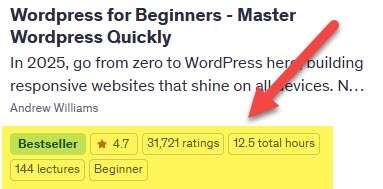ChatGPT and Google represent distinct approaches to information access. Google excels in real-time search capabilities, multimedia content delivery, and source verification through direct links. ChatGPT leverages generative AI for nuanced conversations and complex information synthesis. While Google promotes autonomous exploration with diverse sources, ChatGPT enables depth-focused dialogues. Each platform serves unique user needs, with distinct strengths in breadth versus depth. Understanding these differences reveals best use cases for both giants.
Key Takeaways
- Google excels in real-time information and diverse multimedia content, while ChatGPT specializes in conversational AI and detailed explanations.
- ChatGPT offers personalized, contextual responses through dialogue, whereas Google provides broad search results for independent exploration.
- Google's strength lies in source verification with direct links, while ChatGPT lacks immediate fact-checking capabilities.
- Google delivers current news and trends through continuous web crawling, but ChatGPT's knowledge is limited to its training data.
- Google's interface promotes quick navigation across multiple formats, while ChatGPT enables deep, focused discussions on specific topics.
Understanding the Fundamental Differences
While both ChatGPT and Google serve as information retrieval tools, their underlying architectures and approaches differ fundamentally.
Google operates as a search engine, crawling and indexing web pages to match queries with existing content, whereas ChatGPT employs generative AI to synthesize responses through natural language processing.
This distinction shapes user engagement markedly – Google presents an array of sources for independent exploration, while ChatGPT engages in contextual dialogue, crafting tailored responses.
The former excels at delivering diverse, real-time results, while the latter specializes in understanding nuanced queries and providing coherent, synthesized information through interactive conversations.
Real-Time Information vs. Training Data
The access to current information represents a key differentiator between Google and ChatGPT's operational capabilities. Google's continuous web crawling enables real-time updates, delivering breaking news, market fluctuations, and emerging trends instantly to users.
In contrast, ChatGPT operates within data limitations established by its training cutoff date, potentially missing recent developments without browsing capabilities.
While Google excels at delivering fresh, dynamic content from across the internet, ChatGPT compensates through sophisticated processing of its existing knowledge base, offering nuanced analysis of historical trends and patterns.
This fundamental distinction shapes how users leverage each platform for different informational needs.
Search Experience and User Interface
Search experiences between ChatGPT and Google demonstrate fundamentally different approaches to user interaction and information retrieval.
Google's interface design emphasizes rapid search navigation through multiple tabs, filters, and multimedia options, allowing users to freely explore vast information landscapes. In contrast, ChatGPT adopts a conversational interface that guides users through layered discussions, enabling in-depth examinations into specific topics.
While Google presents a grid of options and links for autonomous exploration, ChatGPT's streamlined chat format facilitates focused, iterative exchanges.
This distinction reflects the underlying architecture of each platform: Google's breadth-first approach versus ChatGPT's depth-first methodology in user engagement.
Content Format and Accessibility
Content accessibility and format diverge markedly between ChatGPT and Google, with each platform optimizing for distinct user consumption patterns.
Google delivers diverse multimedia formats, including images, videos, maps, and news articles, while providing direct source links for verification. Its interface accommodates various format preferences through specialized search filters.
ChatGPT focuses on text-based interactions, offering structured responses through natural language processing. While this streamlines information delivery, it limits multimedia accessibility.
The platform excels in synthesizing complex information into digestible formats but lacks the rich visual elements and direct source attribution that characterize Google's ecosystem.
Power of Conversational AI vs. Traditional Search
While traditional search engines excel at retrieving discrete pieces of information, conversational AI platforms like ChatGPT fundamentally transform how users interact with and extract knowledge from digital systems.
The conversational dynamics enable deeper exploration of topics through natural dialogue, allowing users to refine queries iteratively and build upon previous responses. This adaptive interaction creates a more intuitive knowledge-gathering experience, enhancing user engagement through contextual understanding and personalized responses.
Unlike static search results, AI-driven conversations evolve with the user's needs, offering a more sophisticated and liberating approach to information discovery and problem-solving.
Source Verification and Reliability
The distinction between verifiable information and AI-generated responses highlights a fundamental consideration in digital knowledge systems.
While Google provides direct links to original sources, enabling users to validate information independently, ChatGPT's responses lack immediate source credibility verification.
Google's framework allows readers to cross-reference multiple sources, assess the reliability of information, and trace data lineage.
However, ChatGPT's neural network processes synthesize information without explicit source attribution, creating a trade-off between conversational fluidity and information validation.
This dichotomy shapes how users approach each platform for research, academic work, and knowledge acquisition.
Making the Right Choice for Your Needs
Selecting between ChatGPT and Google depends fundamentally on specific use cases and desired outcomes. For research requiring real-time data and source verification, Google proves ideal.
ChatGPT excels in analytical tasks, content creation, and complex problem-solving scenarios where contextual understanding is vital. User preferences play a decisive role – those valuing conversational interaction and synthesized information gravitate toward ChatGPT, while users requiring extensive web searches and multimedia content find Google indispensable.
The choice ultimately aligns with workflow requirements: ChatGPT for deep, focused analysis; Google for broad, real-time information gathering and verification.
Frequently Asked Questions
Can Chatgpt Replace Google Completely for Everyday Information Needs?
ChatGPT's limitations with real-time data and source verification make complete Google replacement unfeasible. Each platform serves distinct functions, with Google's continuous updates remaining essential for thorough information access.
Which Tool Is Better for Academic Research and Scholarly Work?
Like twin engines of discovery, Google's vast scholarly databases and citation tracking combine with ChatGPT's synthesis abilities, offering ideal academic accuracy and research efficiency when used complementarily.
How Do Privacy and Data Collection Practices Differ Between Both Platforms?
Each platform handles user data distinctly: Google extensively collects browsing data for targeted advertising, while ChatGPT focuses on conversation logs, both operating under specific privacy policies and user consent frameworks.
What Are the Monthly Costs Associated With Using Chatgpt Versus Google?
Subscription models reveal distinct cost structures: ChatGPT offers free basic access while premium costs $20/month. Google search remains free, monetizing through ads rather than direct user payments, enabling unrestricted information access.
Can Chatgpt and Google Be Used Together to Enhance Search Results?
Users can leverage ChatGPT's analytical capabilities alongside Google's search optimization to enhance information extraction, creating a powerful synergy for thorough research and deeper understanding of complex topics.
Conclusion
Recent analytics reveal that ChatGPT reached 100 million monthly active users within just two months of launch, demonstrating unprecedented adoption rates in the AI sector. This rapid growth, juxtaposed against Google's established 5.6 billion daily searches, signals a paradigm shift in information retrieval methodologies. The coexistence of these platforms indicates an evolving digital ecosystem where specialized AI capabilities complement traditional search functionalities.



